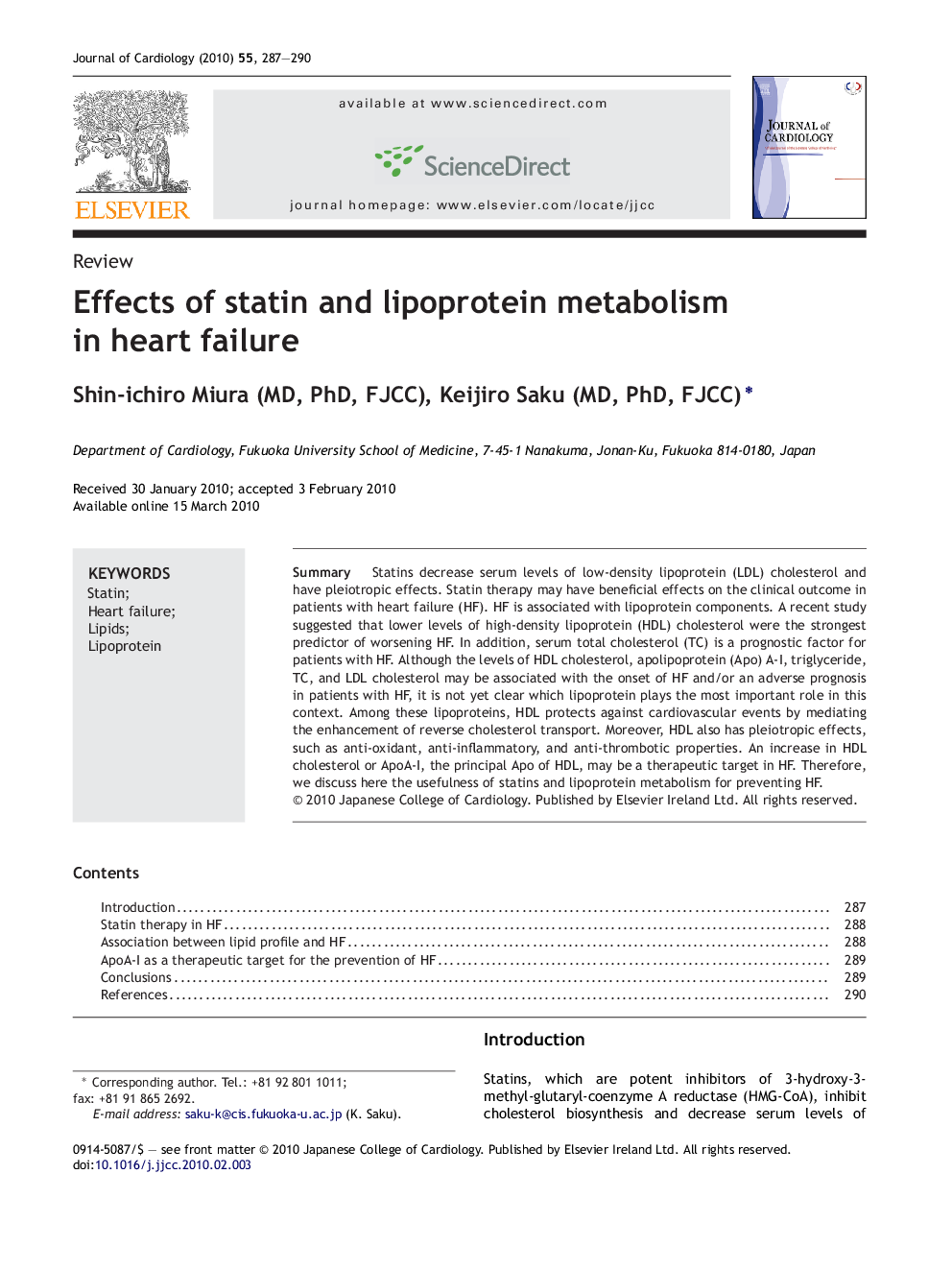| Article ID | Journal | Published Year | Pages | File Type |
|---|---|---|---|---|
| 2963564 | Journal of Cardiology | 2010 | 4 Pages |
SummaryStatins decrease serum levels of low-density lipoprotein (LDL) cholesterol and have pleiotropic effects. Statin therapy may have beneficial effects on the clinical outcome in patients with heart failure (HF). HF is associated with lipoprotein components. A recent study suggested that lower levels of high-density lipoprotein (HDL) cholesterol were the strongest predictor of worsening HF. In addition, serum total cholesterol (TC) is a prognostic factor for patients with HF. Although the levels of HDL cholesterol, apolipoprotein (Apo) A-I, triglyceride, TC, and LDL cholesterol may be associated with the onset of HF and/or an adverse prognosis in patients with HF, it is not yet clear which lipoprotein plays the most important role in this context. Among these lipoproteins, HDL protects against cardiovascular events by mediating the enhancement of reverse cholesterol transport. Moreover, HDL also has pleiotropic effects, such as anti-oxidant, anti-inflammatory, and anti-thrombotic properties. An increase in HDL cholesterol or ApoA-I, the principal Apo of HDL, may be a therapeutic target in HF. Therefore, we discuss here the usefulness of statins and lipoprotein metabolism for preventing HF.
